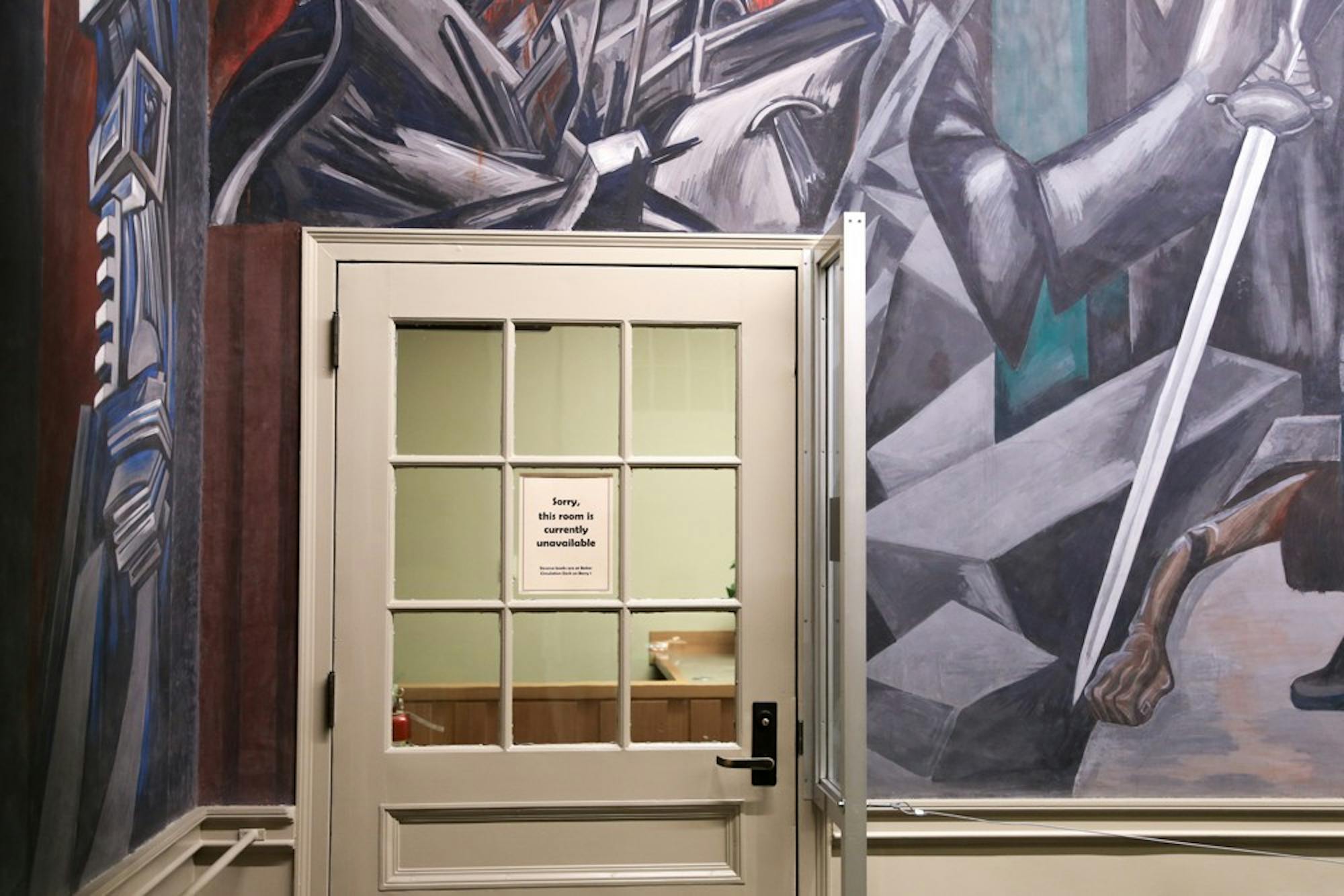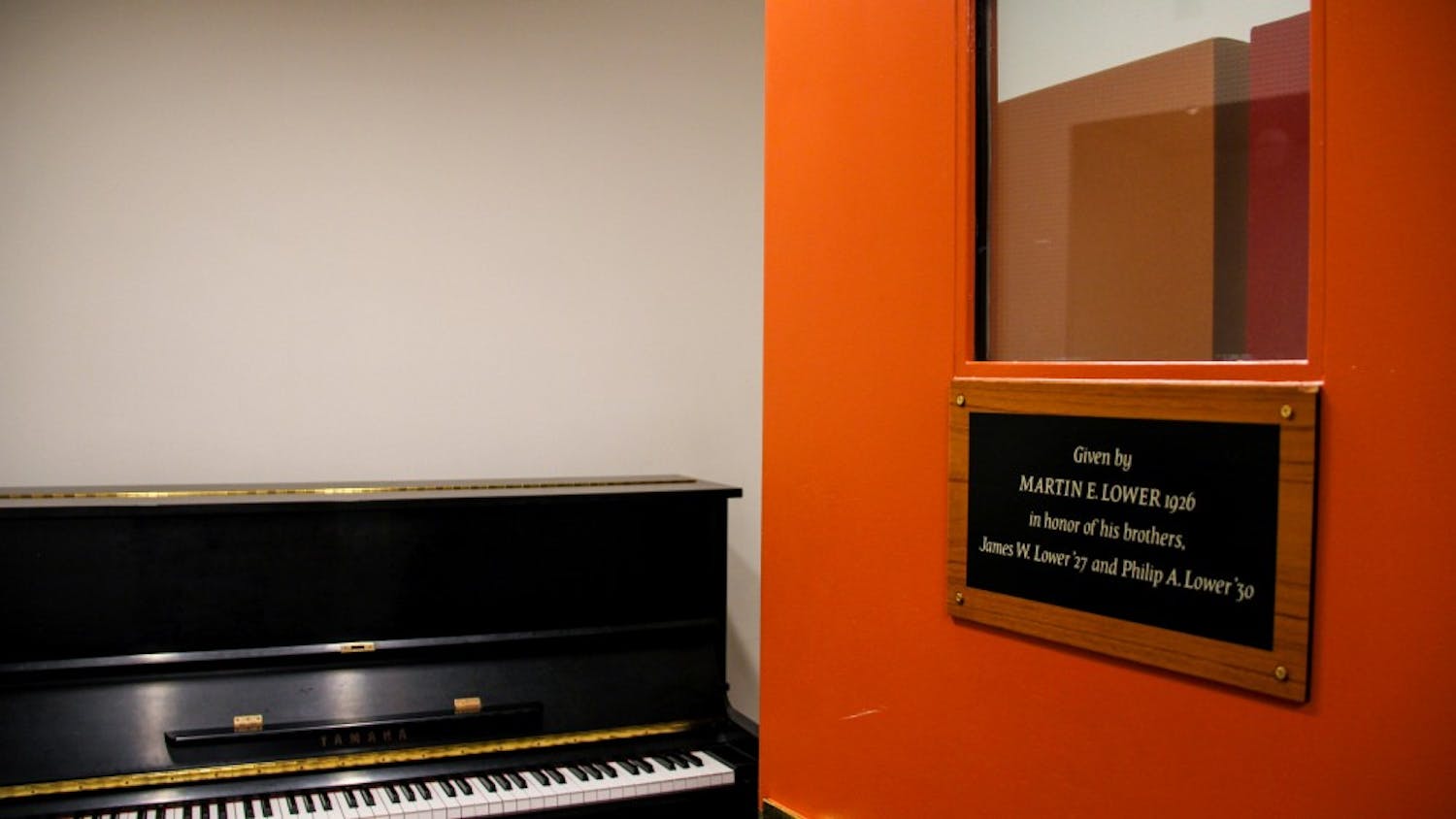Starting this term, Baker-Berry Library has permanently relocated reserve books and microfilm machines from the Orozco Room to behind the circulation desk in Berry Library. While library staff hopes the change will improve service, some students have found that the transition process has resulted in complications.
“The idea behind [the new system] was to improve service by creating a single service point for students,” said head of access and delivery services David Sturges.
While in the past librarians would have to refer students to two different locations to retrieve library materials — the reserve collection in the Orozco corridor as well as the circulation desk on the first floor of Berry — Sturges said that the circulation desk will now act as a “one-stop shop.”
Library staffers also hope that no longer using the Orozco Room, which closes at midnight while the rest of the library closes at 2 a.m., will increase the hours when students can retrieve books. Sturges added that the change was driven by feedback from students who disapproved of the two-location system.
“[Student] access should be just as easy at the Baker Circulation Desk as it was in the Reserves Corridor,” wrote resource sharing assistant Shane Harper in an email. “I’m guessing that besides needing to remember where to go for them, it’s not a big deal.”
However, Emily Andrews ’22, who also works in access and delivery services, said that while she understands the library’s motivations, the new system has experienced some growing pains. She explained that employees who work the reserve and hold desks have had a hard time adjusting to the new arrangement, and it sometimes takes multiple tries for a student to get the right book.
“It might be a little bit annoying because [library staff] can take all their books to one area, but then they have to remember which ones go to which collection up there,” she said. “I think that gets a little bit confusing. If we still had things the way they had been, it would be a lot more convenient for everyone involved.”
Andrews suggested that possible solutions to some of the library’s current problems might be to staff the circulation desk with trained librarians and keep most student employees behind the scenes.
“You’ve added one more thing to the list of things [student employees] have to learn in a crash course,” she said. “It makes it a little bit harder for them to function.”
Sturges said that the library has not heard any feedback from students on the new system, as he does not expect any meaningful long-term effect on library users.
Harper — who works mostly with outside patrons — agreed, writing that “so far there’s not been any feedback pro or con” on the switch. Harper added that while library staff would likely not receive feedback until the system had been in place for a longer period of time, he does not expect the new system will be an issue.
Sturges is receptive to any student opinions on the new system.
“I’m certainly open to any feedback … If students have comments they want to submit, they can certainly submit them to me directly or to anybody at the circulation desk,” he said. “This is the first term [with the new system], and we really want to assess how it’s going. We’re open to that.”

Lauren ('23) is news executive editor for The Dartmouth. She is from Bethesda, Maryland, and plans to major in government and minor in public policy.




